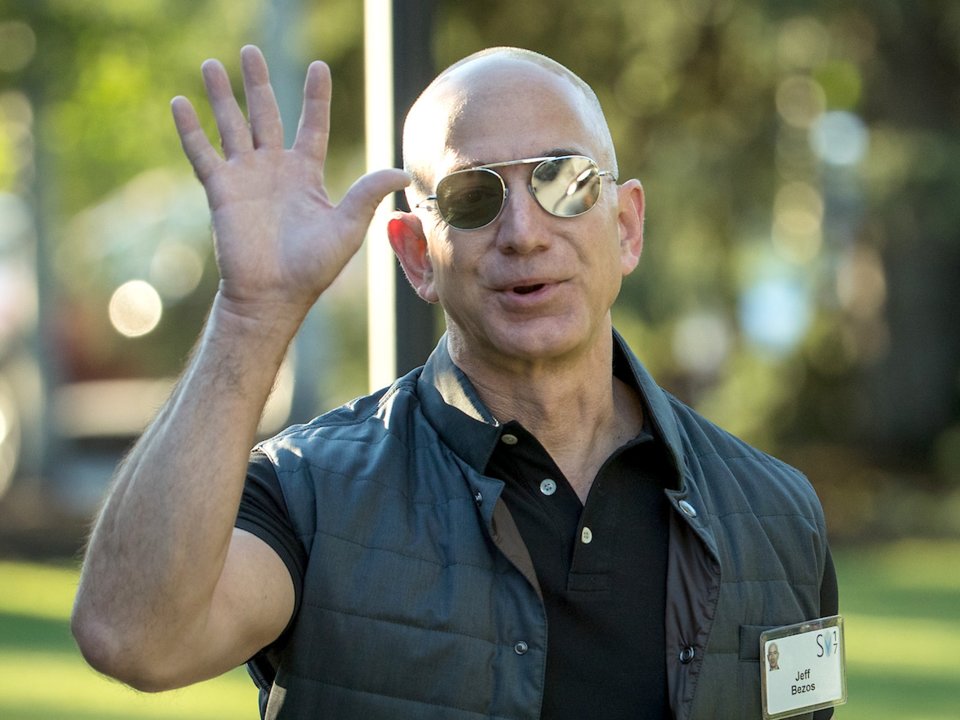
As Americans become increasingly reliant on Amazon, the company’s reputation is moving in a dark direction.
On Prime Day, Amazon’s largest shopping day of the year, the company was bombarded with calls for boycott. Hundreds of social-media users urged customers not to shop on the website during the 36-hour event, which took place Monday and Tuesday.
Amazon workers in Spain and Poland went on strike Monday to protest working conditions at the company’s warehouses. Thousands more did the same in Germany on Tuesday.
Amid this backlash over the treatment and pay of Amazon’s workers, CEO and founder Jeff Bezos became the richest man in modern history on Monday, with his net worth topping $150 billion. Sen. Bernie Sanders of Vermont tweeted: “Jeff Bezo’s newly renovated home in Washington DC will have 25 bathrooms. Meanwhile, Amazon workers skip bathroom breaks in order to meet their grueling work targets.”
This isn’t a new problem for Amazon. But as the company grows, workers’ complaints seem destined to multiply and Bezos is set to become even more unfathomably rich.
Amazon is increasingly being vilified
Amazon’s threat to small businesses was one of the first strikes against the company in some people’s minds. The mere rumor that Amazon is entering a new industry can affect major companies’ stocks. For mom-and-pop businesses, it is easy to feel like a dying breed in the age of Amazon, even as many small companies rely on Amazon for sales.
“Today, millions of small and medium-sized businesses from around the world are selling on Amazon and more than a million of them are based in the US,” an Amazon representative told Business Insider. “Amazon helps these SMBs reach millions of customers around the world by opening our virtual shelf space so they can sell right next to Amazon on our detail pages.”
On the left, an online movement opposing President Donald Trump has been encouraging people to boycott Amazon until the e-commerce giant bans products from Trump-related businesses, cuts ads from the far-right website Breitbart News, and stops streaming NRATV. Amazon is one of Sanders’ top examples of a company that has become too powerful.
Trump too has repeatedly attacked Amazon, arguing that the company has an unfair deal with the US Postal Service. Trump supporters threatened to boycott Amazon after news broke that the company would support Washington state in a federal lawsuit challenging Trump’s executive order barring people from seven majority-Muslim countries from entering the US.
The search for Amazon’s new second headquarters, known as HQ2, has helped put a microscope on Amazon’s local impact. Skyrocketing housing prices, unrelenting traffic, and overcrowding have inspired residents to dub Seattle “Amageddon.” Local businesses have been forced out as prices increase and Amazon’s headquarters expands into “Amazonia.”
In response to criticism, Amazon has touted its investments in Seattle and how the HQ2 deal could pay off for the city that becomes home to its new headquarters.
Perhaps most damning are reports from Amazon workers. While Amazon has been applauded for its impressive benefits, the company has also been plagued with stories of white-collar workers dealing with a brutal working environment in which people cry at their desks after being pushed to their breaking point.
Warehouse workers have protested long hours and the working conditions. Employees told Business Insider earlier this year that they were constantly under surveillance while working in Amazon warehouses with intense targets. Stories include dealing with an “awful smell” coming from warehouse trash cans, which workers used as toilets because workers were afraid of missing targets if they took the time to go to a bathroom.
“The metrics are brutally aggressive, and most of my colleagues are in a state of constant anxiety that we could be fired at any moment for not meeting metrics,” one current US employee said.
The employee added: “Amazon needs union representation globally. It is modern slavery. Jeff Bezos has become the richest man in the world off the backs of people so desperate for work that we tolerate the abuse.”
“We encourage anyone to compare our pay and benefits to other retailers,” an Amazon representative said, noting that the average hourly wage for full-time workers in fulfillment centers was over $15 an hour before overtime. “Amazon is proud to have created over 130,000 new jobs last year alone. These are good jobs with highly competitive pay and full benefits.”
The new Walmart
Amazon isn’t the only company to face criticism for its CEO’s wealth or its treatment of workers. But because it is such a visible company — with the richest CEO — it becomes a target for criticism that could be applied to many retailers.
In this way, Amazon is in a similar position to the one Walmart was in during the 1990s and early 2000s.
Like Amazon, Walmart has been trashed for its impact on small businesses, its political actions and inaction, and its working conditions. In recent years, however, the company has made a concentrated effort to change consumers’ perceptions.
The company raised its minimum wage and started sustainability initiatives. Leadership is speaking out on progressive political issues, with The Wall Street Journal publishing an article earlier in July with the headline “Walmart Takes a Stand on Guns, Gay Rights to Get People to Like It More.”
According to CEO Doug McMillon, Walmart made a concentrated effort to change its reputation. The company’s strategy, he said, became: “Let’s find the people who dislike us the most and go figure out why, and see if there’s some good in what they’re saying — and then implement it.”
Amazon has pushed back against many of the criticisms against it, arguing that the company is ultimately a force for good. While Amazon may be addressing issues internally, the rest of the world’s perception of Amazon is already shifting.
Amazon is being attacked from all angles. As shopping increasingly shifts online, the biggest player in the e-commerce industry is in a prime position to become the biggest villain in American capitalism.

